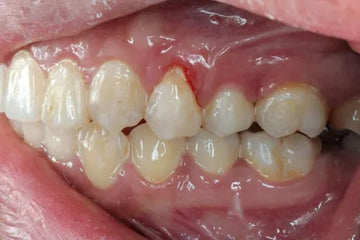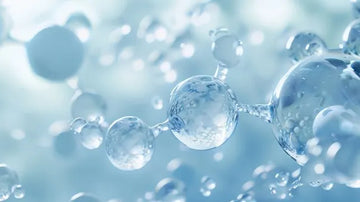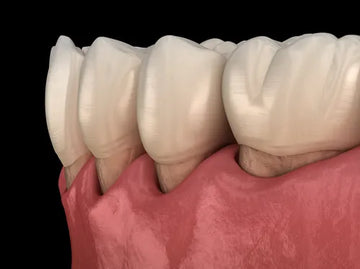Charcoal Toothpaste Done Right: How This Ancient Ingredient Supports a Healthier, Whiter Smile
Table of Contents
-
What Is Charcoal Toothpaste?
-
Why Charcoal Went Viral (and Why It’s Not Just a Trend)
-
How Charcoal Gently Whitens Without Peroxide
-
Charcoal’s Unique Detoxifying Power
-
Is Charcoal Toothpaste Safe? Let’s Talk Science
-
What About Enamel Abrasion?
-
How We Use Charcoal the Right Way at TranscenDental
-
Charcoal and the Oral Microbiome
-
Is Charcoal Toothpaste Good for Gum Health?
-
The Synergy of Charcoal + Hydroxyapatite
-
How Our Formula Balances Polish and Protection
-
Charcoal Toothpaste vs. Other Whitening Options
-
Who Should Try a Charcoal Toothpaste?
-
FAQs
-
Final Thoughts
1. What Is Charcoal Toothpaste?
Charcoal toothpaste is made using activated charcoal, a finely processed form of carbonized plant material—usually coconut shells or hardwood—that’s been heated at high temperatures to create an incredibly porous structure. This unique texture allows it to bind to particles, helping to lift stains and unwanted compounds from the surface of your teeth. It can also be used to remove biofilms, bad bacteria and toxins. This is why it is part of our fluoride free, SLS free toothpaste formula. Try it here.
Used wisely, it’s one of nature’s most elegant tools for cleaning the mouth.

2. Why Charcoal Went Viral (and Why It’s Not Just a Trend)
Charcoal toothpaste exploded in popularity over the last decade, and while the buzz was fueled by influencers and before/after smile selfies, the ingredient itself has a long-standing history.
In fact, ancient Ayurvedic and African oral care practices used charcoal and ash as tooth powders for millennia—not for marketing, but for effectiveness.
The modern resurgence? It’s rooted in:
-
Interest in natural, fluoride-free toothpaste alternatives
-
Desire for non-chemical whitening and SLS free toothpaste
-
Curiosity about detoxifying ingredients in personal care
But charcoal’s value isn’t just hype. Let’s talk real benefits.

3. How Charcoal Gently Whitens Without Peroxide
Unlike hydrogen peroxide or carbamide peroxide (which chemically bleach tooth enamel), charcoal works mechanically by binding and lifting surface stains caused by:
-
Coffee and tea tannins
-
Red wine
-
Berries and tomato-based sauces
-
Tobacco and vape residue
Its ultrafine particles create a mild polishing effect—just enough to reveal the enamel’s natural color without harsh abrasion.
Bonus: Because it doesn’t bleach, it’s safe for sensitive teeth and less likely to cause gum irritation. This is why it is the best stain remover for people with yellow teeth suffering from gum disease. Our toothpaste was specifically formulated as a periodontal toothpaste first and foremost and secondly as a toothpaste to restore tooth enamel.
4. Charcoal’s Unique Detoxifying Power
Charcoal has an adsorptive (not “absorptive”) effect. That means it binds molecules to its surface—particularly:
-
Bacterial byproducts (volatile sulfur compounds that cause bad breath)
-
Stain-causing pigments
-
Toxins and chemical residues from food or conventional toothpaste
This binding action is what makes activated charcoal a go-to remedy in hospitals for overdoses and poisonings. In oral care, it gives your mouth a deep clean feel—without killing your beneficial flora.
5. Is Charcoal Toothpaste Safe? Let’s Talk Science
Here’s the truth: not all charcoal toothpaste is created equal.
The concern over safety usually comes down to:
-
Abrasiveness
-
Heavy metal contamination
-
Lack of remineralizing support
How we address this at TranscenDental:
-
We use pharmaceutical-grade activated charcoal with third-party heavy metal testing.
-
Our formula maintains a low RDA (Relative Dentin Abrasivity) well below ADA maximums.
-
We pair charcoal with 15% nano-hydroxyapatite, which actively rebuilds enamel.
So yes—when used properly, charcoal toothpaste is absolutely safe.

6. What About Enamel Abrasion?
Charcoal has a reputation for being “too abrasive,” but this depends entirely on particle size and formulation context.
We use:
-
Micronized charcoal particles, smooth and round (not jagged)
-
Combined with gentle silica and hydroxyapatite, which buffer the grit
-
Formulated to stay well under the ADA’s RDA safety limit of 250
In other words, our charcoal polishes—without stripping.
And while some mainstream charcoal toothpastes skip remineralizers altogether, we do the opposite. Every use rebuilds enamel.
7. How We Use Charcoal the Right Way at TranscenDental
At TranscenDental, we include activated charcoal in our formula not because it’s trendy—but because it works.
We’ve crafted a charcoal toothpaste that’s:
-
Non-toxic and fluoride-free and SLS free Toothpaste
-
Remineralizing thanks to 15% nano-hydroxyapatite
-
Alkalinizing, supporting a healthy oral pH with xylitol, baking soda, zinc magnesium and ocean trace minerals
-
Antimicrobial, but selectively so
-
Polishing, not eroding
We don’t just throw charcoal in and hope for the best. We engineered it to support whole-mouth health, not just whiter teeth. Get yours here.
8. Charcoal and the Oral Microbiome
Unlike alcohol mouthwashes or peroxide-heavy pastes, charcoal doesn’t nuke your microbiome. Instead, it:
-
Binds volatile compounds and toxins without killing all bacteria
-
Helps regulate pH to discourage acid-loving pathogens
-
Leaves beneficial flora like S. salivarius intact
We also pair charcoal with xylitol and mineral-rich clays to further support microbial balance.
9. Is Charcoal Toothpaste Good for Gum Health?
When formulated correctly, yes. Charcoal can:
-
Bind bacterial toxins that irritate gums
-
Reduce plaque adhesion
-
Alkalinize the mouth to help tissue repair
We’ve taken it a step further by adding botanicals like:
-
Gotu kola – known for tissue regeneration
-
Comfrey – soothes and supports oral wound healing
-
Yarrow – promotes circulation and gum integrity
So while charcoal clears the terrain, our other ingredients nourish the gum ecosystem.
10. The Synergy of Charcoal + Hydroxyapatite
This is where things get exciting.
Most charcoal toothpastes fall short because they:
-
Polish but don’t rebuild enamel
-
Clean but don’t nourish tissue
-
Freshen but don’t heal or protect
By combining activated charcoal with nano-hydroxyapatite, we:
-
Gently lift stains
-
Fill in microcracks in enamel
-
Restore lost minerals
-
Protect teeth from future erosion
It’s not one or the other—it’s both.
11. How Our Formula Balances Polish and Protection
Here’s what you’ll find in our charcoal-infused mouthpaste:
| Ingredient | Function |
|---|---|
| Activated Charcoal | Adsorbs toxins and stains |
| Nano-Hydroxyapatite (15%) | Rebuilds enamel and whitens |
| Xylitol | Starves cavity-causing bacteria |
| Baking Soda | Alkalinizes oral environment |
| Adaptogenic Botanicals | Heal gum tissue |
| Silica & Mineral Clays | Gently polish and detox |
| Ocean Trace Minerals | Provide essential ionic nutrients |
Each ingredient has a purpose—and they’re all working together.
12. Charcoal Toothpaste vs. Other Whitening Options
| Ingredient | Mode | Whitening Power | Microbiome Safe? | Remineralizing? |
|---|---|---|---|---|
| Charcoal | Surface polish | Mild | ✅ | ⚠️ unless paired with HAP |
| Hydroxyapatite | Enamel repair | Moderate | ✅ | ✅ |
| Hydrogen Peroxide | Chemical bleach | Strong | ❌ | ❌ |
| Baking Soda | Alkaline abrasive | Mild | ✅ | ⚠️ |
| Silica | Gentle polish | Mild | ✅ | ⚠️ |
By combining charcoal with HAP, we give you the whitening edge without harshness.
13. Who Should Try a Charcoal Toothpaste?
✅ If you want a gentle whitening boost
✅ If you want to avoid peroxide or fluoride
✅ If you drink coffee, tea, or red wine regularly
✅ If you’re looking to balance your oral microbiome
✅ If you value natural, safe, science-backed ingredients
Not for:
-
People with extremely thin enamel (use every other day)
-
Those expecting instant bleaching (this is gradual, sustainable whitening)
14. Frequently Asked Questions
Q: Is charcoal toothpaste safe for daily use?
A: Yes—if the formulation is low-abrasion and paired with remineralizers like HAP. TranscenDental’s is.
Q: Can charcoal toothpaste damage enamel?
A: Poorly formulated ones can. Ours has a tested RDA within ADA safety limits.
Q: Will charcoal stain dental work or veneers?
A: No. Our formula uses finely milled charcoal that rinses clean and does not embed in composites.
Q: Does charcoal help with bad breath?
A: Yes—it binds odor-causing compounds without disrupting good bacteria.
Q: Is your charcoal toothpaste tested for heavy metals?
A: Absolutely. We third-party test every batch for purity and safety.
15. Final Thoughts
Charcoal toothpaste has gotten a bad rap—but when it's done right, it's an incredible tool for oral health. At TranscenDental, we use charcoal intelligently, blending ancient wisdom with modern science to deliver:
-
Gentle whitening
-
Detoxifying breath support
-
Microbiome-safe cleansing
-
Enamel-rebuilding synergy
-
A formula that truly transforms your mouth

Ready to experience the charcoal toothpaste that works with your biology—not against it?
👉 Try TranscenDental Mouthpaste →
Give our xylitol mints a try while you are at it too, here.





